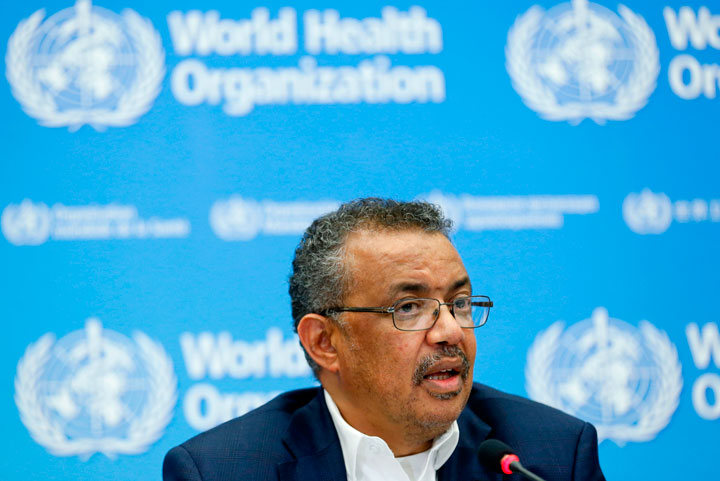The World Health Organization is set to reconvene an emergency committee Thursday, tasked with deciding whether the new coronavirus constitutes a public health emergency of international concern.

The WHO committee met for two days last week, after which it announced that while the virus was a serious concern in China, it was not yet an international emergency. The vote was closely split at that time, officials said.
The committee will not only determine whether the virus is now an emergency, but will also make recommendations on how it should be handled.
As of late Tuesday, there were nearly 6,000 confirmed cases of the virus, with 132 confirmed deaths.

Dr. Michael Ryan, executive director of the WHO Health Emergencies Programme, told a press conference Wednesday that the outbreak was still clearly centred in China, especially in the city of Wuhan. Ninety-nine per cent of cases were in China.
The majority of the cases outside China were in people who had travelled to China or the Wuhan area, he said. There have been a handful of cases in Vietnam, Germany and Japan that have been reported among people who had not been to China.
Of the reported cases, 20 per cent have had severe illness, he said. Around two per cent of reported cases have ended in death.

Get weekly health news
However, according to Dr. Maria Van Kerkhove, who works in emerging diseases and zoonoses (diseases originating in animals) with the WHO, officials don’t have enough information to determine anything like a death rate yet. People with milder illnesses may not have been reported, for example.
“It’s very early to make any conclusive statements about what the mortality will be,” she said.

The WHO believes that the disease is primarily spread by droplets in the air, similar to other respiratory illnesses, Ryan said. As such, prevention methods would be the same as other such illnesses. “Clearly we want people who are sick, especially those with coughs and difficulty breathing, to seek health care as soon as possible.”
The disease can also be passed from person to person by direct physical contact, and the virus can contaminate surfaces and be spread when someone touches that surface, Van Kerkhove said.
“This disease is still spreading from person to person,” Ryan said. But, he believes, the chains of transmission can still be interrupted.
“The whole world needs to take action and be ready for other cases that come.”
Ryan also recently travelled to China as part of a WHO mission, and told reporters he was very impressed by the Chinese government’s response and transparency with regard to the coronavirus outbreak so far. He could not recall seeing other governments being so transparent in an outbreak situation before, he said.

Having worked on SARS in 2002-03, he said, “There is no comparison between the behaviour of China then, and the behaviour of China now.”
This kind of transparency, he said, makes the outbreak easier to fight.
“When a government is that committed, when a government is that transparent, we do have a chance.”



Comments
Want to discuss? Please read our Commenting Policy first.